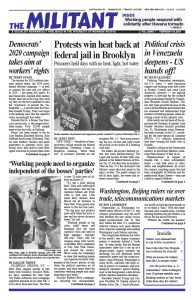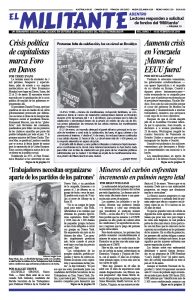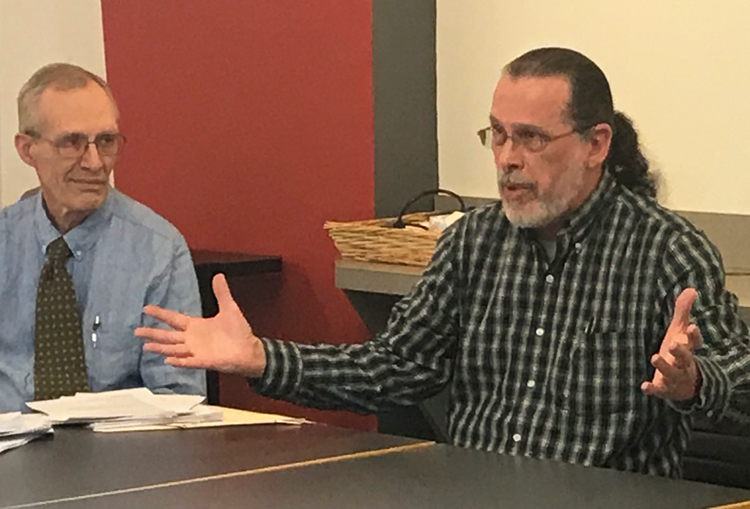PHILADELPHIA — “The best way to learn about Cuba is to go and see for yourself,” said Enrique Sacerio-Garí. He was encouraging the 20 people at a public meeting here Feb. 3 to sign up to go on the April 21 – May 5 May Day International Volunteer Work Brigade in Solidarity with Cuba. “At the same time, the best way to understand Cuba is to try and understand what’s going on in the United States.” Sacerio-Garí, a Cuban-born writer and poet, is a professor of Hispanic and Hispanic-American Studies and chair of the Spanish Department at Bryn Mawr College.
Sacerio-Garí talked about his family’s immigration to the U.S. from Cuba before the revolution. As a young boy he believed some of the U.S.-government propaganda condemning the revolution. But in the 1960s he joined the anti-Vietnam War movement and met people who were in solidarity with Cuba. Then he went to see for himself.
He said those who go on the brigade can help defend Cuba’s revolution when they return by sharing what they’ve learned with others.
The discussion, sponsored by the Moonstone Arts Center, was introduced by Sacerio-Garí; John Staggs, Socialist Workers Party candidate for Philadelphia City Council at-Large; and Steve Halpern, a worker and poet.
The brigade is being organized by the Cuban Institute for Friendship with the Peoples (ICAP). This year marks the 60th anniversary of the Cuban Revolution. On Jan. 1, 1959, workers and farmers, led by Fidel Castro and the July 26 Movement, took power and began to transform the country to meet their needs.
“I live in one of the poorest sections of Philadelphia,” said Fermin Morales, an electrician and member of the Philadelphia-Camden Boricua Committee. “When I went to Cuba, every neighborhood I visited had a doctor, not just working but also living in the neighborhood, always available. No doctor lives in my neighborhood here.”
Halpern, who went on the May Day brigade in 2017, said that some 300 volunteers come each year “from different countries, cultures and speaking different languages.” Brigade participants join hundreds of thousands of Cubans at the annual International Workers Day march and rally May 1 in Havana’s Plaza of the Revolution.
As brigade participants meet Cuban workers and farmers, and representatives of their mass organizations, they will learn about the history of the revolution and its impact on the lives of working people on the island. Brigadistas can share their experiences in the labor and social struggles and political developments they have been part of in their own countries.
John Staggs, who is going on this year’s brigade, told the meeting he first heard about Cuba from news coverage of revolutionary leader Fidel Castro and rebel forces fighting in the Sierra Maestra mountains before the revolution triumphed. “But then after the 1959 victory I found out the revolutionaries were actually carrying out their program,” he said. “That made a tremendous impact on me.”
Staggs said he looks forward to discussing with Cuban workers and other brigadistas the reality of life under U.S. capitalism as well as the teachers strike in West Virginia and other fights in the labor movement here that he, as a Walmart worker, has joined in solidarity.
The U.S. contingent is being organized by the National Network on Cuba. Applications need to be submitted by March 15 and are available, along with the itinerary, at www.nnoc.info. A $650 fee covers all expenses. Round-trip airfare to Cuba is extra.


